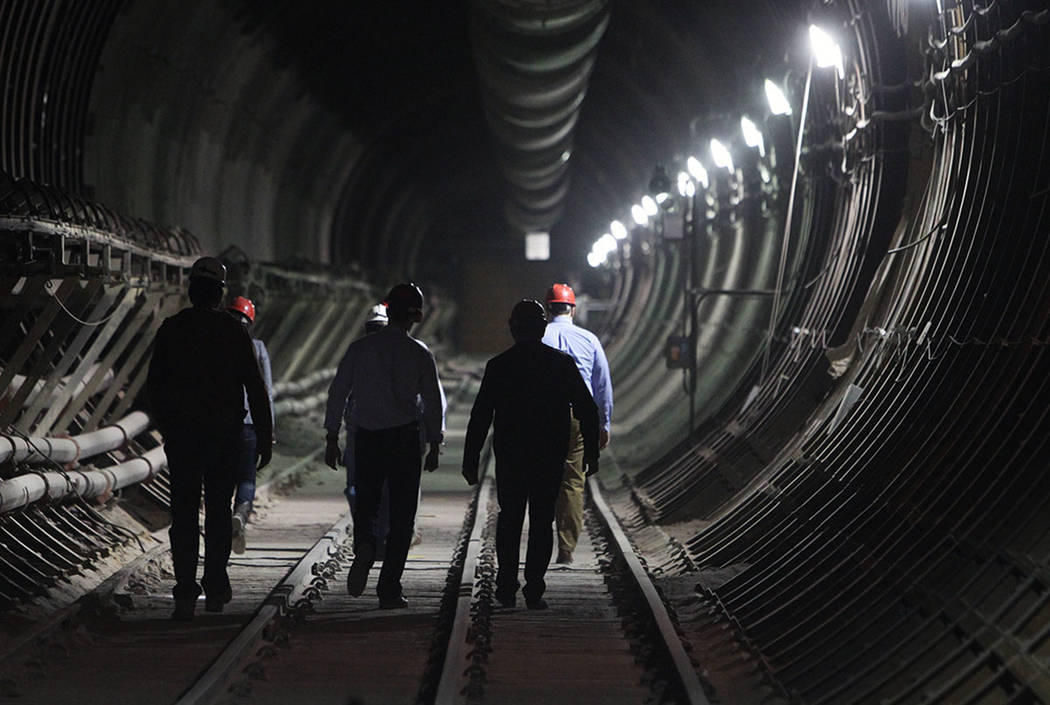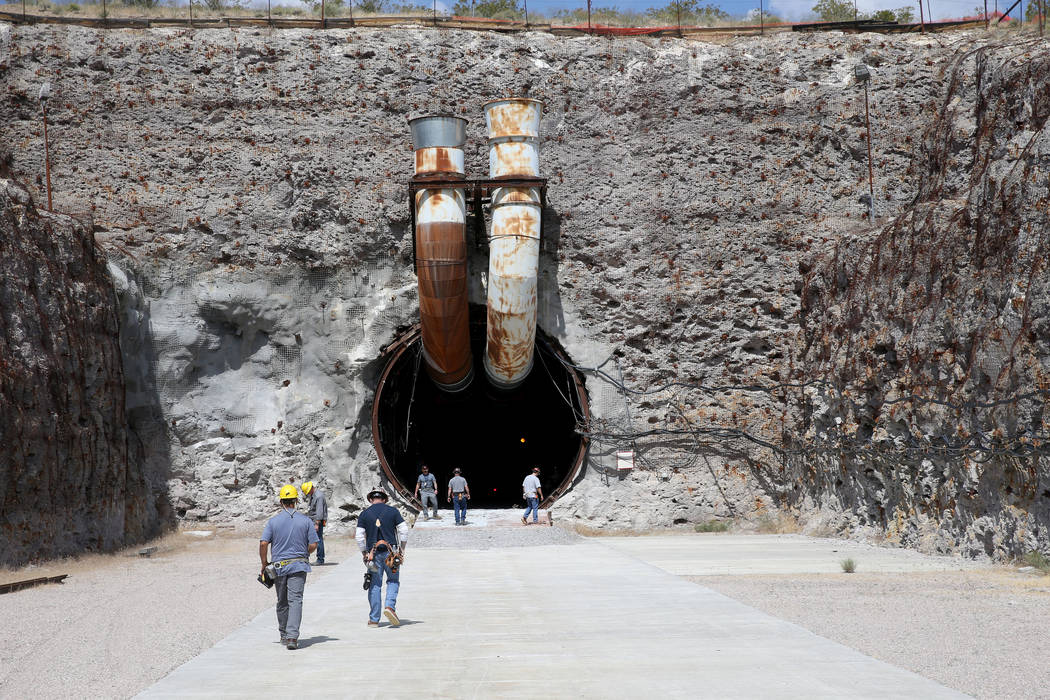Interim nuclear waste bill boosted by Trump budget
WASHINGTON — A Trump administration budget blueprint on nuclear waste storage appears to bolster one of the competing Senate plans to develop and place radioactive material at temporary sites until the Yucca Mountain stalemate is resolved or a permanent site selected.
The administration’s policy reversal and proposal mirrors the position put forward by the Nevada Commission on Nuclear Projects last year.
President Donald Trump eliminated requests for funding to continue licensing Yucca Mountain in his budget proposals for the Energy Department and Nuclear Regulatory Commission in fiscal year 2021, which begins Oct. 1.
Trump had proposed $120 million in the past three budget requests, but those were blocked by the House and Senate. This election-year budget includes only $27.5 million for development of an interim storage program.
Nevada lawmakers were encouraged by the president’s sudden reversal, but openly suspicious of the timing.
A sponsor of Senate legislation to authorize interim facilities said the president’s shift provides momentum.
“President Trump’s decision to embrace alternatives to storing waste at Yucca Mountain is welcome news,” said Sen. Lamar Alexander, R-Tenn., chairman of the Senate Appropriations subcommittee for energy and water development.
Alexander said it is imperative for the future of nuclear power to “solve the nuclear waste stalemate” that resulted in stockpiling of radioactive materials at sites in 39 states since 1987.
“There is bipartisan support for allowing consolidated nuclear waste at private facilities, and I look forward to working with the president to solve this problem,” Alexander said.
Current law requires the federal government to take possession of the waste and directs it be buried in a permanent repository. Allowing interim storage at private facilities would require congressional action.
Companies in New Mexico and Texas have signaled interest in temporary storage. But recent local opposition has grown in those states over environmental concerns, and worries that short-term disposal sites could become permanent because of inaction on Yucca Mountain.
Yucca Mountain was designated in 1987 as the sole site for a permanent nuclear waste repository, but political opposition has stalled the project for more than three decades.
Sen. John Barrasso, R-Wyo., chairman of the Senate Environment and Public Works Committee, has legislation that would push to restart licensing and increase the capacity of Yucca Mountain. The Barrasso bill would also allow for public or private temporary storage.
In a letter hand-delivered to the White House on Monday, Nevada Gov. Steve Sisolak asked Trump to veto the Barrasso bill along with companion legislation filed in the House.
Nevada favors the interim-storage legislation put forth by Alexander, Sen. Dianne Feinstein, D-Calif., the ranking Democrat on the Appropriations subcommittee for energy, and Sen. Lisa Murkowski, R-Alaska, the chairwoman of the Senate Energy and Natural Resources Committee.
Nevada’s two Democratic senators, Catherine Cortez Masto and Jacky Rosen, oppose the Barrasso bill or any other that would develop Yucca Mountain as a permanent site for nuclear waste storage.
In the House, the state’s entire delegation, Republican Mark Amodei and Democrats Dina Titus, Susie Lee and Steven Horsford, urged passage of a bill that would require state and local approval before building a nuclear waste repository.
Contact Gary Martin at gmartin@reviewjournal.com or 202-662-7390. Follow @garymartindc on Twitter.
























